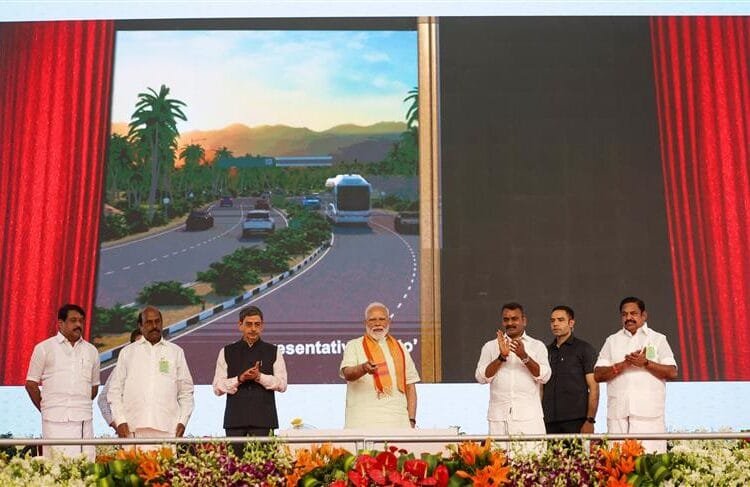Govt encourages research and technology development proposals in collaboration with the industry, says Minister
Minister for Power and New and Renewable Energy R.K Singh has updated Lok Sabha on renewable energy projects as well as installation biogas plants with the Government supported incentives and initiatives.
The Government has taken several steps to promote renewable energy in the country, Singh told the house on 3 Feb 2022.
These steps include:
permitting Foreign Direct Investment (FDI) up to 100 percent under the automatic route,
waiver of Inter State Transmission System (ISTS) charges for inter-state sale of solar and wind power for projects to be commissioned by 30th June 2025,
declaration of trajectory for Renewable Purchase Obligation (RPO) up to the year 2022,
setting up of Ultra Mega Renewable Energy Parks to provide land and transmission to RE developers on a plug and play basis,
schemes such as Pradhan MantriKisanUrja Suraksha evamUtthaanMahabhiyan (PM-KUSUM), Solar Rooftop Phase II, 12000 MW CPSU Scheme Phase II, etc,
laying of new transmission lines and creating new sub-station capacity under the Green Energy Corridor Scheme for evacuation of renewable power,
setting up of Project Development Cell for attracting and facilitating investments,
Standard Bidding Guidelines for tariff based competitive bidding process for procurement of Power from Grid Connected Solar PV and Wind Projects.
The Government has issued orders that power shall be dispatched against Letter of Credit (LC) or advance payment to ensure timely payment by distribution licensees to RE generators.
The Ministry, he said, supports a scheme “Renewable Energy Research and Technology Development Programme” through various research institutions and industry which is being implemented to enable indigenous technology development and manufacture for wide spread applications of new and renewable energy in an efficient and cost effective manner across the country.
The scheme encourages research and technology development proposals in collaboration with the industry and provides up to 100% financial support to Government/non-profit research organizations and up to 50-70% to Industry, Start-ups, Private Institutes, Entrepreneurs and Manufacturing units.
He also gave details of schemes for biogas plants.
Small size biogas plants (1-25 m3 biogas per day) under New National Biogas and Organic Manure Programme (NNBOMP);
Medium size biogas plants (30-2500 m3 biogas per day) under the Biogas based Power Generation (Off-Grid) and Thermal Energy Applications Programme (BPGTP); and
Large size biogas plants (above 2500 m3 biogas per day) biogas plants under Programme on Energy from Urban, Industrial, Agricultural Wastes/ Residues and Municipal Solid Waste (Waste to Energy Scheme).
These schemes were valid till 31 March 2021. Beyond 31 March 2021, the Bio-energy Programme of MNRE has been continued for the period of FY 2021-22 to FY 2025-26 only to meet the already created liabilities and no new projects are to be sanctioned.
The Central Financial Assistance (CFA) which was being provided under the above schemes when they were being implemented was as follows:
Rs.7,500/- to Rs.35,000/- per plant based on size of the plant in cubic meter under
NNBOMP;
Rs.25,000 to Rs.40,000 per kilowatt for power generation and Rs.12,500 to Rs.20,000 per kilowatt equivalent for thermal applications under BPGTP; and
Rs.1.0 crore per 12,000 m3 per day for biogas generation and Rs.4.0 crore per 4,800 kg/day for Bio-CNG generation under Waste to Energy Scheme.
Under the Sustainable Alternative Towards Affordable Transportation (SATAT), the Government is promoting the production of Compressed Bio Gas (CBG) as an alternative green transport fuel wherein Oil and Gas Marketing Companies (OGMCs) are procuring the produced CBG, said Singh. fiinews.com










